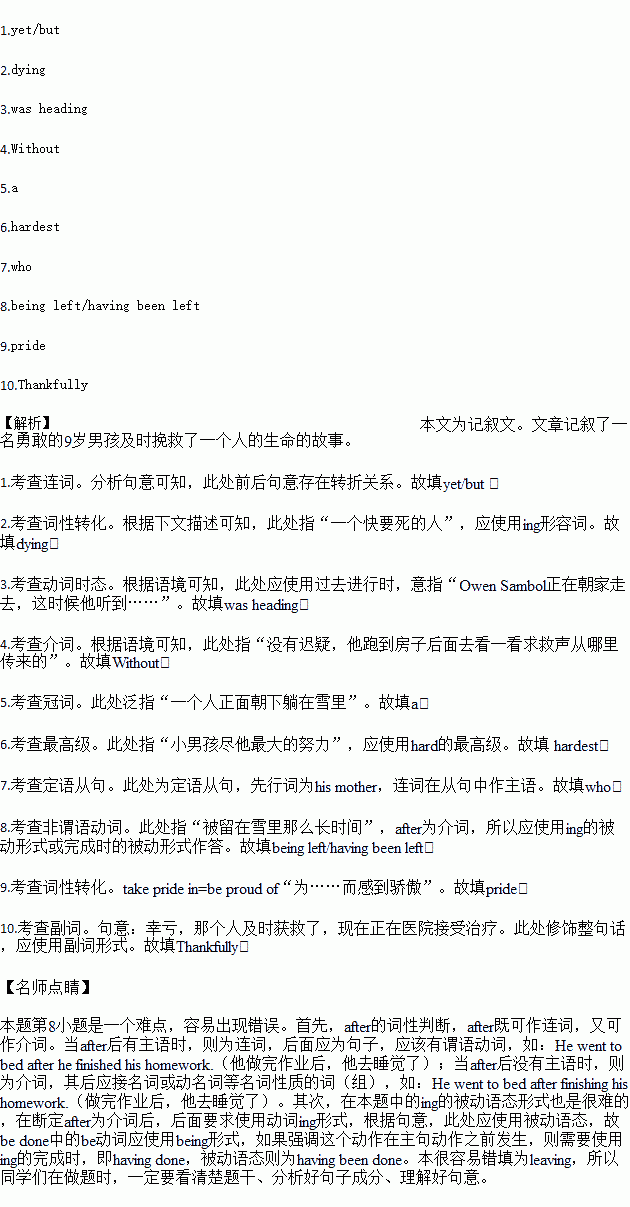题目内容
Many fourth graders would panic in an emergency situation,1.one Pennsylvania nine - year - old is being called a hero after discovering a2.(die') man and knowing exactly what to do to save his life. This past Friday, Owen Sambol3.(head) home, from school on a cold, snowy day when he heard a faint noise that sounded like someone crying for help.4.hesitating, he ran behind the house to see where it was coming from and discovered5.man lying face down in the snow.
The little boy tried his6.(hard) to pull the man up, but he wasn't strong enough. Instead of panicking, he told the man he would get his mother,7. is afire-fighter, and come right back for him. Mom Ashley Sambol called 911 right away, then pulled the man up and carried him into her home because she was afraid he had hypothermia(低体温)after8.(leave)in the snow for so long.
“I take9.(proud)in him," Ashley said about her son, who stayed calm and saved a life that afternoon.” Had he been out there any longer and who knows.’’10.(thank), the man was rescued just in time and is now healing in the hospital.
 口算心算速算应用题系列答案
口算心算速算应用题系列答案 同步拓展阅读系列答案
同步拓展阅读系列答案| A. | such a moved | B. | so moving a | C. | such moving a | D. | so a moved |

